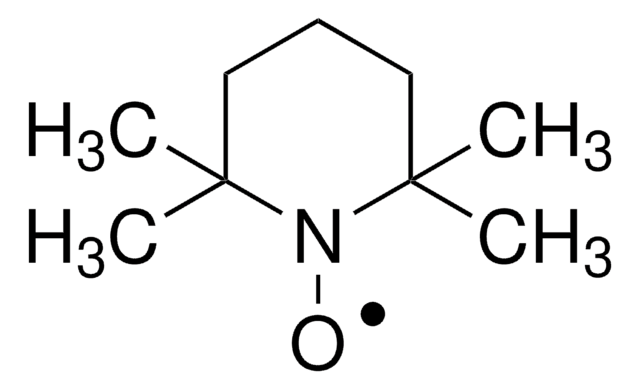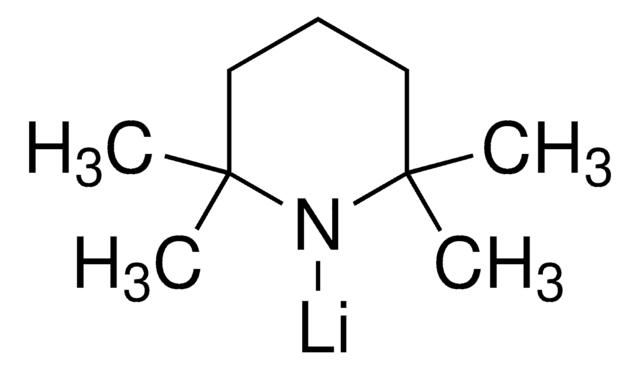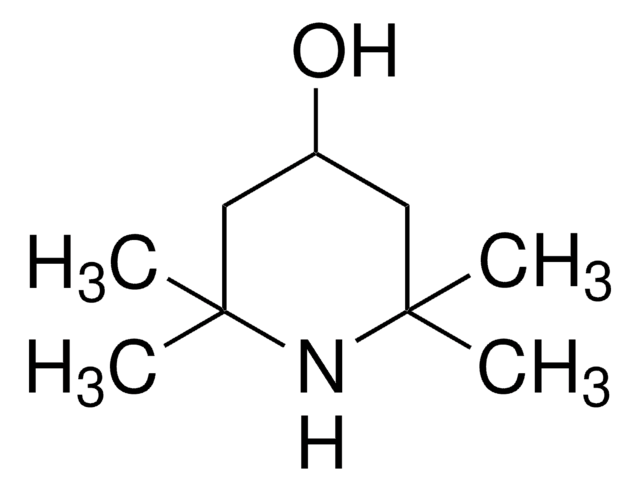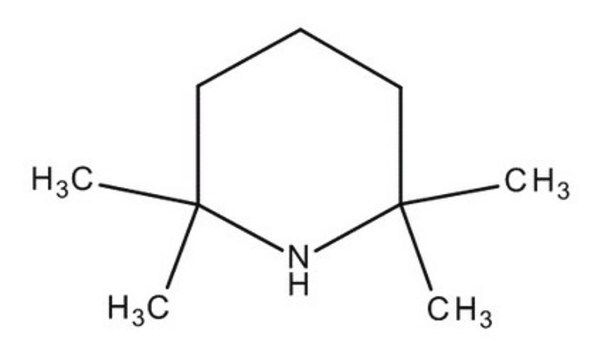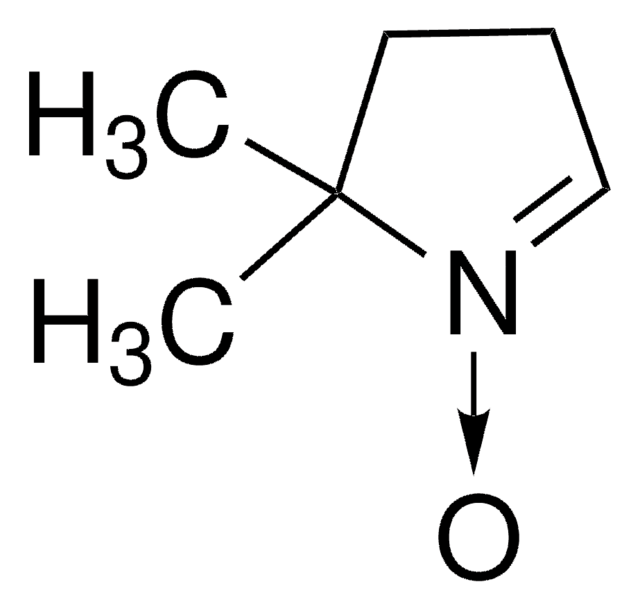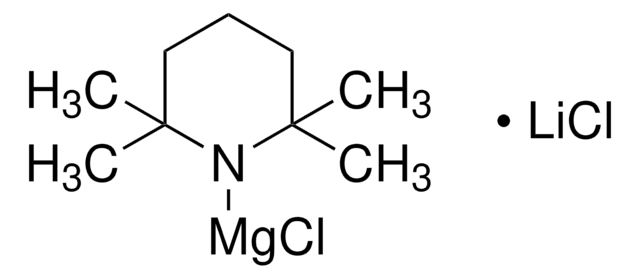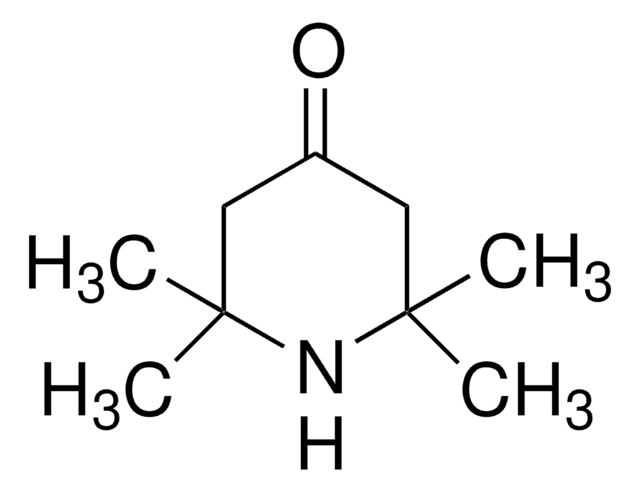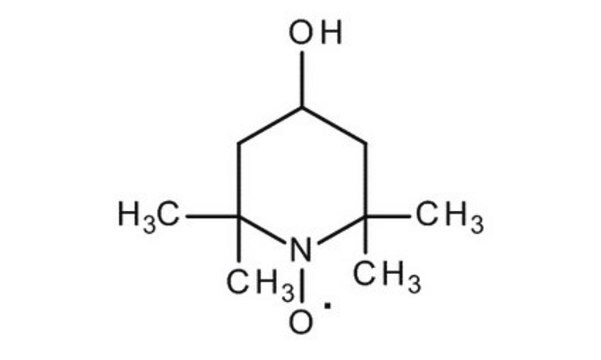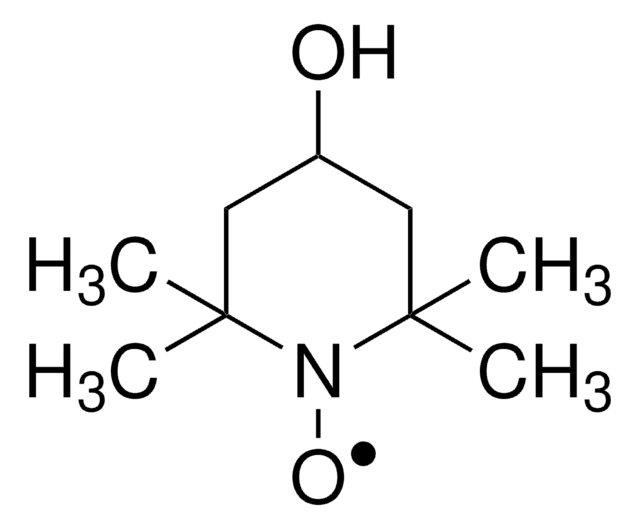115754
2,2,6,6-Tetramethylpiperidine
≥99%
Synonym(s):
2,2,6,6-tetramethylpiperidide, 2,2,6,6-tetramethylpiperidine, Norpempidine, TEMP, TMPH
About This Item
Recommended Products
Quality Level
Assay
≥99%
refractive index
n20/D 1.445 (lit.)
bp
152 °C (lit.)
density
0.837 g/mL at 25 °C (lit.)
SMILES string
CC1(C)CCCC(C)(C)N1
InChI
1S/C9H19N/c1-8(2)6-5-7-9(3,4)10-8/h10H,5-7H2,1-4H3
InChI key
RKMGAJGJIURJSJ-UHFFFAOYSA-N
Looking for similar products? Visit Product Comparison Guide
General description
Application
- Allylated tertiary amines via allylic amination of allylic chlorides.
- Hydroxylamines via oxidation in the presence of oxone as an oxidant.
- Sulfenamide compounds by reacting with heterocyclic thiols in the presence of iodine as an oxidant.
- N-methylated amines via N-methylation by reacting with CO2 and phenylsilane.
- Propargylamines via three-component Mannich coupling reaction with aldehydes and alkynes.
Signal Word
Danger
Hazard Statements
Precautionary Statements
Hazard Classifications
Acute Tox. 4 Oral - Eye Dam. 1 - Flam. Liq. 3 - Met. Corr. 1 - Skin Corr. 1A - STOT SE 3
Target Organs
Respiratory system
Storage Class Code
3 - Flammable liquids
WGK
WGK 2
Flash Point(F)
98.6 °F - closed cup
Flash Point(C)
37 °C - closed cup
Personal Protective Equipment
Choose from one of the most recent versions:
Certificates of Analysis (COA)
Don't see the Right Version?
If you require a particular version, you can look up a specific certificate by the Lot or Batch number.
Already Own This Product?
Find documentation for the products that you have recently purchased in the Document Library.
Customers Also Viewed
Articles
COMU is a non-explosive coupling agent suitable for solution phase & solid phase peptide synthesis. Its activity meets or exceeds that of HATU and its water-soluble by-product are easily removed.
Our team of scientists has experience in all areas of research including Life Science, Material Science, Chemical Synthesis, Chromatography, Analytical and many others.
Contact Technical Service